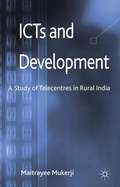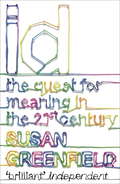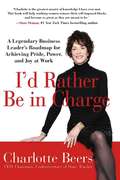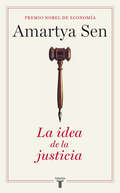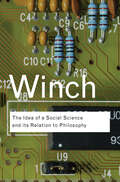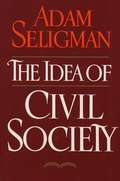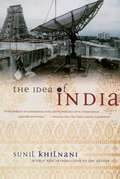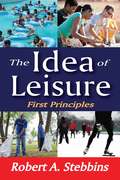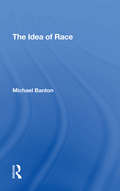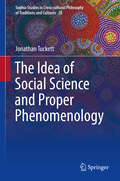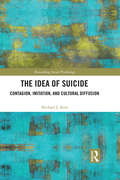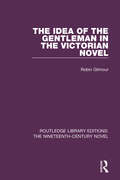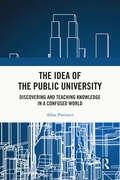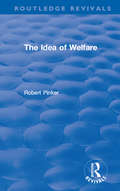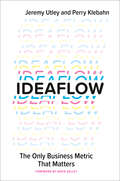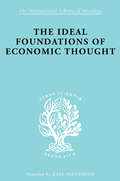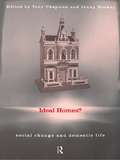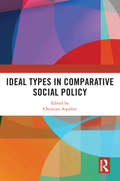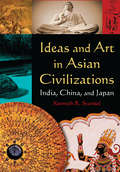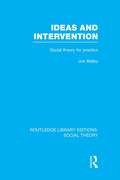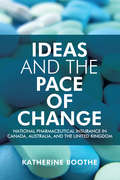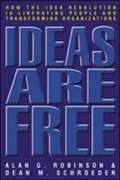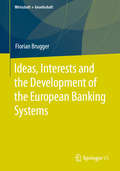- Table View
- List View
ICTs and Development
by Maitrayee MukerjiJuxtaposes the global discourse on ICT-D with in-depth case studies on the pattern of access and use of telecentres to draw implications for the possible development trajectories induced by the provision of ICTs in rural hinterlands of India.
ID
by Susan GreenfieldIf you’ve ever wondered what effect video games have on your children’s minds or worried about how much private information the government and big companies know about you, ID is essential reading.Professor Susan Greenfield argues persuasively that our individuality is under the microscope as never before; now more then ever we urgently need to look at what we want for ourselves as individuals and for our future society.ID is an exploration of what it means to be human in a world of rapid change, a passionately argued wake-up call and an inspiring challenge to embrace creativity and forge our own identities.
ID
by Susan GreenfieldIf you?ve ever wondered what effect video games have on your children?s minds or worried about how much private information the government and big companies know about you, ID is essential reading.Professor Susan Greenfield argues persuasively that our individuality is under the microscope as never before; now more then ever we urgently need to look at what we want for ourselves as individuals and for our future society.ID is an exploration of what it means to be human in a world of rapid change, a passionately argued wake-up call and an inspiring challenge to embrace creativity and forge our own identities.
I'd Rather Be in Charge
by Charlotte BeersCharlotte Beers is proof that women can achieve power, pride, and joy at work—despite the odds. In the highly competitive and often cutthroat world of advertising, Charlotte became the first female ever to head two giant, multinational advertising agencies. In serving her demanding clients, she helped build many of the most important brands around the world. Today, Charlotte rates her current title—teacher—her most satisfying, as she travels through the United States and Europe educating women on how to ignite their own strengths, in what she calls “the era of forging ahead for women. ” Her pioneering experiences have been captured inI’d Rather Be in Charge, creating a blueprint for women as they face their own challenges and strive to achieve the positions of leadership and influence they deserve. Told in an intimate and honest style,I’d Rather Be in Chargeis part personal history, part pragmatic guide, as Charlotte describes her own experiences, lessons from her peers such as Martha Stewart and Suze Orman, as well as stories of her students’ transformations. By chronicling both successes and mistakes, Charlotte proves that finding your own personal style of leadership is the only way to take charge, find satisfaction, and gain confidence in the ever-evolving workplace of today. I’d Rather Be in Chargeis a breakthrough book. It is a master class for women who are ready to shatter their own glass ceilings.
I'd Rather Be in Charge
by Charlotte BeersCharlotte Beers is proof that women can achieve power, pride, and joy at work--despite the odds. In the highly competitive and often cutthroat world of advertising, Charlotte became the first female ever to head two giant, multinational advertising agencies. In serving her demanding clients, she helped build many of the most important brands around the world. Today, Charlotte rates her current title--teacher--her most satisfying, as she travels through the United States and Europe educating women on how to ignite their own strengths, in what she calls "the era of forging ahead for women." Her pioneering experiences have been captured in I'd Rather Be in Charge, creating a blueprint for women as they face their own challenges and strive to achieve the positions of leadership and influence they deserve. Told in an intimate and honest style, I'd Rather Be in Charge is part personal history, part pragmatic guide, as Charlotte describes her own experiences, lessons from her peers such as Martha Stewart and Suze Orman, as well as stories of her students' transformations. By chronicling both successes and mistakes, Charlotte proves that finding your own personal style of leadership is the only way to take charge, find satisfaction, and gain confidence in the ever-evolving workplace of today. I'd Rather Be in Charge is a breakthrough book. It is a master class for women who are ready to shatter their own glass ceilings.
La idea de la justicia
by Jean DrèzeUna nueva teoría de la justicia para el mundo real. ¿Es la justicia social un ideal fuera de nuestro alcance o una posibilidad real? Más allá del discurso intelectual, la idea de la justicia desempeña un importante papel en nuestras vidas. Amartya Sen ofrece una alternativa a las teorías convencionales de la justicia, que a pesar de sus muchos logros hace tiempo que dejaron atrás las realidades prácticas. Desde la Ilustración, las teorías dominantes han tendido a ocuparse de identificar las disposiciones sociales perfectamente justas y definir la naturaleza de la sociedad perfecta. Sen, entregado a la reducción de la injusticia, centra su enfoque en los juicios comparativos de lo que es «más» o «menos» justo y en evaluar los méritos de ciertas instituciones e interacciones sociales. En el núcleo de su reflexión subyace el respeto por las diferentes percepciones de la «sociedad justa». Muy distintas convicciones puedenofrecer soluciones claras, directas y defendibles. La perspectiva de Sen, uno de los pensadores más influyentes de nuestra era, hace uso de esa pluralidad con el fin de construir una teoría de la justicia para el mundo moderno, capaz de absorber distintos puntos de vista y resolver las cuestiones de injusticia global. La crítica ha dicho...«Sen es uno de los grandes pensadores de nuestra era.»The Times «Leer Las razones de la justicia es como asistir a una clase magistral de razonamiento práctico. [...] Ésta es una obra monumental.»The Independent
The Idea of a Social Science and its Relation to Philosophy
by Peter WinchIn the fiftieth anniversary of this book's first release, Winch's argument remains as crucial as ever. Originally published in 1958, The Idea of a Social Science and Its Relation to Philosophy was a landmark exploration of the social sciences, written at a time when that field was still young and had not yet joined the Humanities and the Natural Sciences as the third great domain of the Academy. A passionate defender of the importance of philosophy to a full understanding of 'society' against those who would deem it an irrelevant 'ivory towers' pursuit, Winch draws from the works of such thinkers as Ludwig Wittgenstein, J. S. Mill and Max Weber to make his case. In so doing he addresses the possibility and practice of a comprehensive 'science of society'.
Idea Of Civil Society
by Adam SeligmanAs the countries of East-Central Europe struggle to create liberal democracy and the United States and other Western nations attempt to rediscover their own tarnished civil institutions, Adam Seligman identifies the neglect of the idea of "civil society" as a central concern common to both cultures today. Two centuries after its origins in the Enlightenment, the idea of civil society is being revived to provide an answer to the question of how individuals can pursue their own interests while preserving the greater good of society and, similarly, how society can advance the interests of the individuals who comprise it. However, as Seligman shows, the erosion of the very moral beliefs and philosophical assumptions upon which the idea of civil society was founded makes its revival much more difficult than is generally recognized.
The Idea of India
by Sunil KhilnaniThe key book on India in the post nuclear era, with a new Introduction by the author. Our appreciation of the importance of India can only increase in light of the recent revelations of its nuclear capabilities.
The Idea of Leisure: First Principles
by Robert A. StebbinsA range of thinkers in philosophy, religion, and the social sciences have argued that thanks to science, technology, and the organization of society, the human condition has improved and will continue to do so. People are becoming progressively happier and enjoying an ever-improving quality of life, they say, mostly because they are putting their skills and reason to work. The Idea of Leisure is based on the assumption that leisure also fits into the social order, and it provides a singular vector by which to measure progress, even though it is rarely mentioned in writings about the idea of progress. Robert A. Stebbins believes that leisure fosters positive development in both the individual and community. Progress through free-time activity may sometimes be hard to grasp because of the all-too-common manifestations of deviant behavior from schoolyard bullying to date rape. Despite these examples, the vast majority of leisure activities often have profound, positive consequences for participants and society. Stebbins makes a solid case for linking leisure with progress. Although leisure has huge importance for humanity, observations about the idea of leisure as part of the idea of progress have been sporadic. It is no accident that the World Leisure Organization promotes the motto: "Leisure: integral to social, cultural, and economic development." Nor is it an accident that Article 24 of the United Nations Universal Declaration of Human Rights declares that: "Everyone has the right to rest and leisure, including reasonable limitation of working hours and periodic holidays with pay." For whole nations to find satisfaction and self-fulfillment based on leisure would be a true sign of progress. Stebbins' book offers original insight into this basic human requirement.
The Idea Of Race
by Michael BantonThis book deals with the study of race relations as a general body of knowledge which tries to bring together in a common framework studies of group relations in different countries. It explores the intellectual context within which the old conception of race relations arose.
The Idea of Social Science and Proper Phenomenology (Sophia Studies in Cross-cultural Philosophy of Traditions and Cultures #28)
by Jonathan TuckettThis monograph examines an academic discipline in crisis. The author claims that this field concerned with society and relationships is in trouble. No one can seem to agree on what it does or how to go about doing it. His insightful argument revives the thought of key phenomenologists often no longer considered in social science. Looking predominantly at debates within religious studies, this book uncovers certain misguided presuppositions which have strongly influenced scholars in the field. This reflects itself in a Weberian Ideal regarding the institutional place of science in the universities and a failure to properly consider the epistemic status of knowledge produced for its own sake. But even recognizing these issues will not get to the core of the crisis. It will not help scholars better understand what it is to be human. To address this, the author digs deeper. He draws on the philosophical phenomenology of Husserl’s Phenomenological Movement to critique our very idea of social science. In the process, he presents a radical approach to the question of humanity. This volume concludes that, properly understood, social science is a hobby. It deserves no special place in the university. Indeed, if it is to be pursued properly, it requires a fundamentally revised understanding of humanity. The author argues this not of the sake of controversy. Rather, his intention is to affect the necessary shift in our understanding that will enable future constructive solutions.
The Idea of Suicide: Contagion, Imitation, and Cultural Diffusion (Researching Social Psychology)
by Michael J. KralThis book is about a new theory of suicide as cultural mimesis, or as an idea that is internalized from culture. Written as part of a new, critical focus in suicidology, this volume moves away from the dominant, strictly scientific understanding of suicide as the result of a mental disorder, and towards positioning suicide as an anthropologically salient, community-driven phenomenon. Written by a leading researcher in the field, this volume presents a conception of suicide as culturally scripted, and it demonstrates how suicide becomes a cultural idiom of distress that for some can become a normative option.
The Idea of the Gentleman in the Victorian Novel (Routledge Library Editions: The Nineteenth-Century Novel #16)
by Robin GilmourFirst published in 1981, this book represents the first comprehensive examination of Victorian society’s preoccupation with the ‘notion of the gentleman’ and how this was reflected in the literature of the time. Starting with Addison and Lord Chesterfield, the author explores the influence of the gentlemanly ideal on the evolution of the English middle classes, and reveals its central part in the novels of Thackeray, Dickens and Trollope. Combining social and cultural analysis with literary criticism, this book provides new readings of Vanity Fair and Great Expectations, a fresh approach to Trollope, and a detailed account of the various streams that fed into the idea of the gentleman.
The Idea of the Public University: Discovering and Teaching Knowledge in a Confused World
by Allan PatienceThis book sheds light on the risk of losing the authoritative knowledge discovered and taught by public universities. It argues that public universities are as indispensable now, as never before, for providing governments and citizens with reliable knowledge crucial for confronting the looming environmental, cultural, economic, and political challenges now threatening humanity’s very existence. Acknowledging the history of universities around the world, the book highlights the role they have played in creating and curating knowledge. It examines John Henry Newman’s liberal idea of the university and Wilhelm von Humboldt’s conception of the institution and argues this is all under threat at the hands of fake prophets and biased media preaching "alternative facts" and populist falsehoods. Shedding light on neoliberalism and the tensions between research, education and training, the author demonstrates that the best pedagogical and economic outcomes are achieved when these interests are dynamically informing each other. This book will be of interest to academics, university managers, and higher education policy makers questioning the role, value and purpose of the contemporary public university.
The Idea of Welfare (Routledge Revivals)
by Robert PinkerOriginally published in 1979, The Idea of Welfare critically reviews the concepts of egoism and altruism as they are expressed in residual and intuitional models of social welfare. The book describes the way in which the scope and limits of obligation and entitlement are determined in practice by the interplay of familial, communal, national and international loyalties. It also looks at the similarities and differences between economic and social forms of exchange and mutual aid. These major themes are developed in a comparative review, which explores the effects of social change on the ways in which people seek to preserve and enhance their welfare through self-help and collective action. The book focuses on Britain, the USA and Russia, it challenges conventional definitions of welfare, largely concerned with formal social policies sponsored by government and uses historical material to illustrate the dominant forms of a mutual aid which were practised before the development of modern welfare states.
Ideaflow: The Only Business Metric That Matters
by Jeremy Utley Perry Klebahn&“Teams succeed to the degree that there is a free flow of ideas. Read this book to learn how to bring out the best in others—and in yourself.&” — Scott Galloway, bestselling author of The Four and Post CoronaIdeaflow: the number of ideas you or your team can generate in a set amount of time We all want great ideas, but few actually understand how they&’re born. Innovation doesn&’t come from a sprint or a hackathon--it&’s a result of maximizing ideaflow. Jeremy Utley and Perry Klebahn of Stanford&’s renowned Hasso Plattner Institute of Design (aka the &“d.school&”) offer a proven strategy for coming up with great ideas by yourself or with your team, and quickly determining which are worthy. Drawing upon their combined decades of experience leading Stanford&’s premier Launchpad accelerator and advising some of the world&’s most innovative organizations, like Microsoft, Michelin, Keller Williams Realty, and Hyatt, they&’ll teach you how to: • Overcome dangerous thinking traps • Find inspiration in unexpected places • Trick your own brain to be more creative • Design and deploy affordable experiments • Fill your innovation pipeline • Unleash your own creative potential, as well as the potential of others Perhaps you have experienced low ideaflow. Have you been in that quiet conference room, with a half-filled whiteboard, and an unmet business target?. With the proven system in this book, entrepreneurs, managers, and leaders will learn how to tap into surprising and valuable ideas on demand and fill the creative pipeline with breakthrough ideas.
The Ideal Foundations of Economic Thought (International Library of Sociology)
by Werner StarkPublished in 1998, The Ideal Foundations of Economic Thought is a valuable contribution to the field of Sociology & Social Policy.
Ideal Homes?: Social Change and the Experience of the Home
by Tony Chapman Jenny HockeyIdeal Homes? shows how both popular images and experiences of home life relate to the ability of society's members to produce and respond to social change. The book provides for the first time an analysis of the space of the home and the experiences of home life by writers from a wide range of disciplines, including sociology, architecture, geography and anthropology. It covers a range of subjects, including gender roles, different generations relationships to home, the changing nature of the family, transition and risk and alternative visions of home.
Ideal Types in Comparative Social Policy
by Christian AspalterThis book introduces readers to the world of ideal types within the readings of Max Weber by giving a theoretical understanding of ideal types, as well as applying the development of ideal types to an array of social policy arenas. The twenty-first century has seen the development of welfare regime analysis marked by two differing strands: real-typical welfare regime analyses and ideal-typical welfare regime analysis; the latter focusing on the formation, development and application of ideal types in general comparative social policy. Designed to provide new theoretical and practical frameworks, as well as updated in-depth developments of ideal-typical welfare regime theory, this book shows how Weber’s method of setting up and checking against ‘ideal types’ can be used in a wide variety of policy areas such as welfare state system comparison, comparative social and economic development, health policy, mental health policy, health care system analysis, gender policy, employment policy, education policy and so forth. The book will be of interest to all scholars and students working in the fields of social policy including health policy, public policy, political economy, sociology, social work, gender studies, social anthropology, and many more.
Ideas and Art in Asian Civilizations: India, China and Japan
by Kenneth R. StunkelThis work covers topics related to the exercise of influence by individuals and groups within organizations. It includes an introductory group of articles dealing with the nature of influence processes and power.
Ideas and Intervention: Social Theory for Practice (Routledge Library Editions: Social Theory)
by Joe BaileyTheorizing in sociology has increasingly become a self-generating and self-fulfilling activity, as sociologists absorb theory as an isolated and formalist part of their discipline. Joe Bailey believes that sociological theory should be a contribution to practical social intervention. His book presents a practical view of social theorizing as an activity at which sociologists are skilled and which they could teach to the interventionist professions. The relation between theory and practice is defined as one in which theory guides practice and makes explicit necessary choices. A description of disciplines and professions is provided as a basis for examining social intervention in three areas – law, social work and urban planning. The author considers some exemplary contributions which sociological theorizing could and should provide, and concludes by proposing a pluralist view of theory as the best strategy for a sociology relevant to practice.
Ideas and the Pace of Change
by Katherine BootheCanada is the only OECD country that has universal, comprehensive public hospital and medical insurance but lacks equivalent pharmaceutical coverage. In Ideas and the Pace of Change, Katherine Boothe explains the reasons for this unique situation. Using archival, interview, and polling data, Boothe compares the policy histories of Canada, the United Kingdom, and Australia in order to understand why Canada followed a different path on pharmaceutical insurance.Boothe argues that pace matters in policy change. Quick, radical change requires centralized political institutions, an elite consensus, and an engaged, attentive electorate. Without these prerequisites, states are far more likely to take a slower, incremental approach. But while rapid policy change reinforces the new consensus, incremental progress strengthens the status quo, letting development stall and raising the bar for achieving change.An important contribution to the study of comparative political economy, Ideas and the Pace of Change should be required reading for anyone seeking to understand why health care reforms succeed or fail.
Ideas Are Free: How the Idea Revolution is Liberating People and Transforming Organizations
by Alan G. Robinson Dean M. SchroederBecause they're doing the day-to-day work, front-line employees see many problems and opportunities their managers don't. But most organizations fail to realize this potentially extraordinary source of revenue-enhancing ideas.
Ideas, Interests and the Development of the European Banking Systems (Wirtschaft + Gesellschaft)
by Florian BruggerWhat are the grand dynamics that drive the history of economies? The laws of supply & demand, most economists would argue. For the history of European banking, this book offers an alternative explanation: Rather than market forces, the coincidence and coalitions of charismatic ideas and powerful interests is what shaped banking in Europe! In “Ideas, Interests and the Development of the European Banking Systems”, Florian Brugger traced decisive moments in the history of the European Banking Sector: from the time of the Italian City-States to the post World War I period, he shows how coalitions of ideas and interests built the tracks along which the European Banking Sector developed. Inspired by Max Weber he argues that economic organizations and institutions, like the Banking Sector, are embedded into three fundamental orders: the economic, the cultural and the political order. Enforced and institutionalized by vested interests, ideas of the cultural order legitimate and empower interests of the economic and political order. What is more, decisive moments were frequently characterized by coalitions of ideas and interests between parties that in normal times had nothing in common or were even confronting each other in a hostile way.
